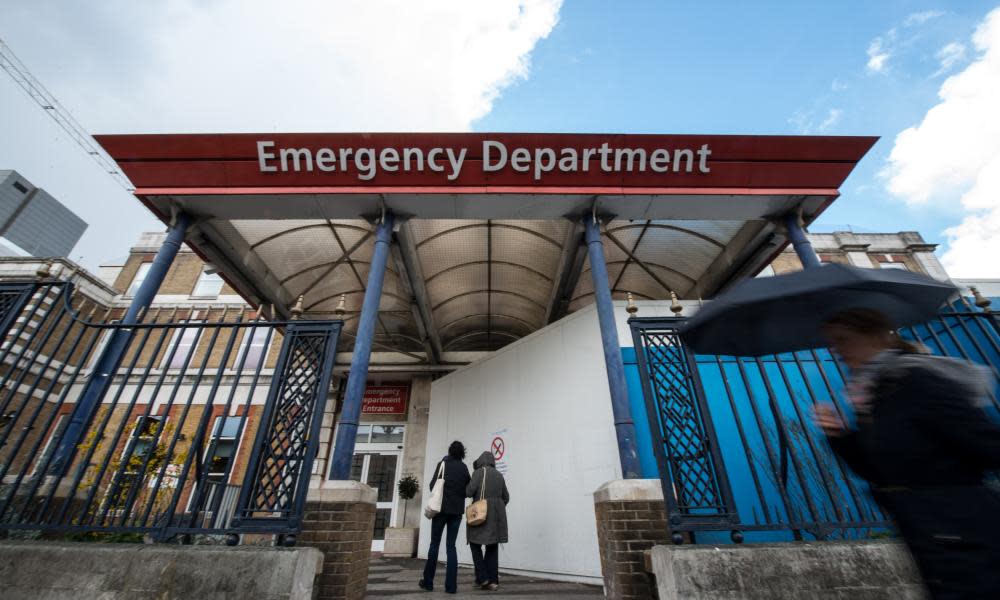I’m quitting as a hospital boss: dire NHS funding problems give me no choice | Bob Kerslake

I have this weekend decided to stand down from my role as chair of King’s College hospital, London.
This was not a decision that I took lightly. I love King’s and have the highest regard for the people who work there. But in the end I have concluded that the government and its regulator, NHS Improvement, are simply not facing up to the enormous challenges that the NHS is currently facing. This is especially true in London where the demands of a rapidly growing population are not being matched by the extra resources we need.
King’s is a big teaching hospital that serves a population of more than one million people in south-east London. It provides world-class services such as neurosciences, haematology, liver, diabetes and cardiovascular, where it is a centre of excellence. King’s is also one of four major trauma centres and played a key role in the response to the Westminster and London Bridge attacks and the fire at Grenfell Tower. But most of all, it is the local hospital to a diverse and often deprived community.
The hospital has struggled financially since it took on responsibility for another hospital, the Princess Royal University hospital in Bromley, in 2013. When I became chair in April 2015, the underlying annual deficit was in excess of £140m. Since then, major and positive changes have been made in how the hospital is run. Savings of £80m, twice the average of other hospitals, have been delivered in each of the last two years. Spending on expensive agency staff and consultants has been drastically reduced. Despite making savings, we have continued to perform well on cancer waiting times and have some of the best health outcomes in the country.
But King’s, like many other hospitals, is fighting against the inexorable pressures of rising demand, increasing costs of drugs and other medical supplies, and the tightest spending figures in recent times. It was this squeeze that led Simon Stevens, the chief executive of the NHS, to argue publicly and rightly for an extra £4bn a year in the recent budget. In the event, the extra resources in the budget fell far short of that. Social care, critical to the health service because of its impact on discharges from hospital and facing an equal if not greater challenge, got nothing.
After two years of delivering or getting close to the deficit target agreed with our regulator NHS Improvement, King’s has moved significantly away from its planned figure for this year. We’re far from alone – almost every hospital in London is struggling – but the scale of the deficit and the change means that we will be put into financial special measures. The secretary of state and the regulator normally extract a price for this at the top and King’s will be no different. We could fight back, but this puts King’s future at even greater risk.
The right thing for me to do therefore is to step down and to do so publicly
The right thing for me to do therefore is to step down and to do so publicly.
Sadly, the reaction of the powers that be is often to shoot the messenger. So it is worth quoting here from the draft report of the independent Care Quality Commission following its recent inspection: “The chair was held in very high regard by staff at all levels. It was apparent the chair had gained the respect of staff with people reporting their approval at how the chair promoted the highest level of probity and governance and of how he demonstrated the organisation’s values and behaviours. Under his leadership the shape of the board was said to have changed to one where the right skills and vision was present at board level.”
My two and a half years at King’s have been in equal parts inspiring and frustrating. There are undoubtedly things that I and the trust could have done better – there always are – but fundamentally our problems lie in the way that the NHS is funded and organised. We desperately need a fundamental rethink. Until then we are simply “kicking the can down the road”.
• Bob Kerslake was chairman of King’s College hospital, London. He is a member of the House of Lords, president of the Local Government Association and former head of the civil service and permanent secretary at the Department for Communities and Local Government

 Yahoo News
Yahoo News 
